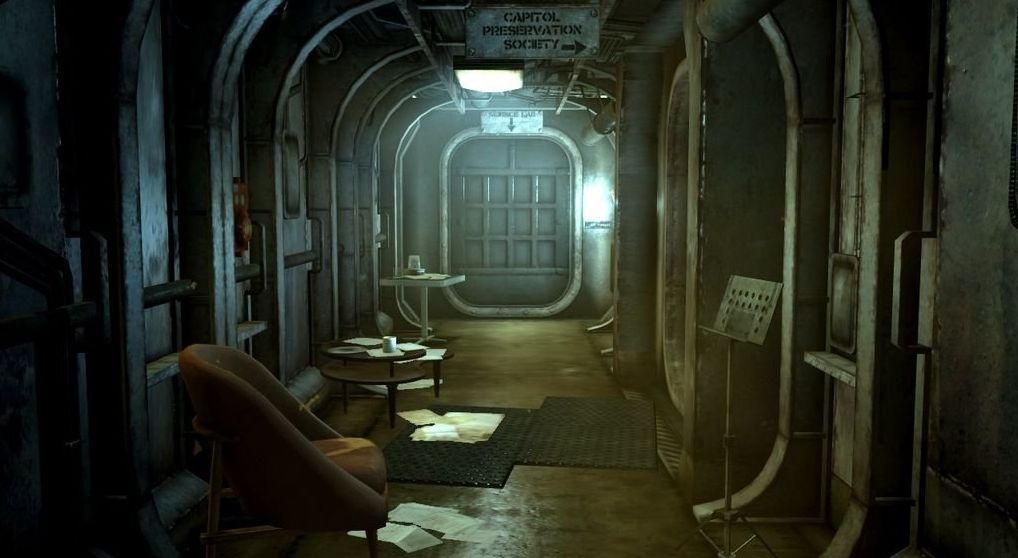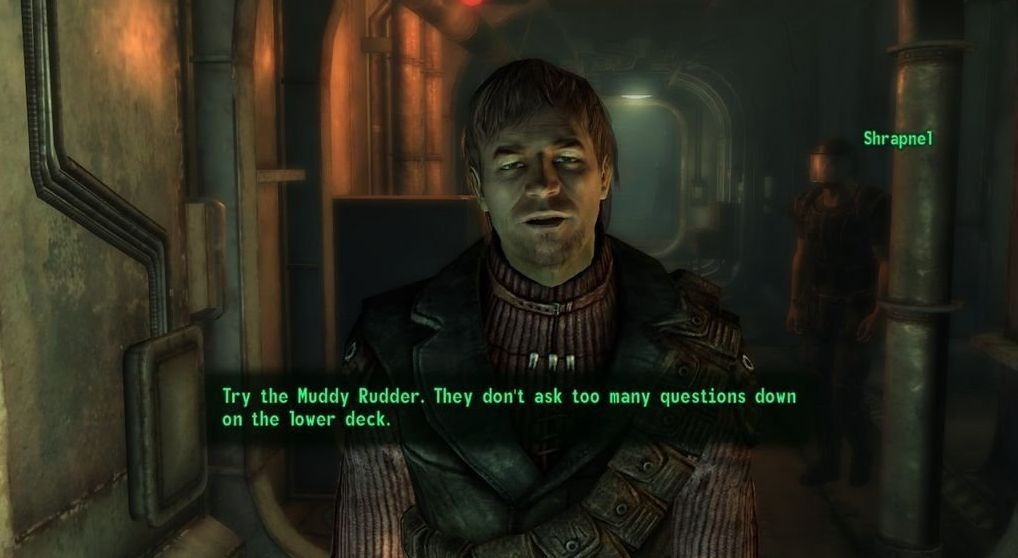My review of the game Fallout 3
A lot of games make a great deal from player alternative, although few in fresh memory offer so many intricate, meaningful ways of approaching any given place. You perform or dash the religious plans of a idyllic society, wall with slavers before their own slaves, then work out the lot of more than one town throughout your postapocalyptic journey through the Washington, DC wasteland. The actions have far-reaching results that will change not simply the world in people but also the way you sport, with this that freedom that makes Fallout 3 worth playing--and replaying. It's strong and fascinating, and though not as staggeringly wide as the developer's previous games, this more focused and clearly realized.
This concentration is clear in the main hours with the game, where character construction and lie exposition are beautifully woven together. It's an introduction best felt at your rather than described in detail here, but it does create Fallout 3's framework: That the year 2277, along with people and your father are residents of Spring 101, one among several like constructs that pound the earth's people from the threats of postnuclear destruction. When dad escapes the vault without much as a goodbye, people move away in search of him, only to find yourself snagged in the supporting with logical pull of conflict that permits you transform the course of the future. As you get your way through the decaying traces of the Center and its surrounding areas (you'll visit Arlington, Chevy Chase, and other suburban locales), you experience passive-aggressive ghouls, a bumbling scientist, with an old Fallout friend named Harold who has, well, a lot by their brains. Another highlight is a small collective of Lord of the Flies-esque refugees who reluctantly appreciate you into their society, imagining which anyone act the cards right.

The capital is also one of Fallout 3's stars. This a serious world out there here, in which a crumbling Washington Monument stands guard over dark green ponds and lurching beasts called mirelurks. You'll see new searches and figures while exploring, of course, but passing through the municipality is rewarding on a, whether you attempt to explore the back rooms of the cola factory or contact the deeply guarded steps on the Capitol building. In fact, though occasional silly apart and charm dialogue give some humorous respite, it's more serious than previous Fallout match. It possibly occasionally feels a little firm with clean, thus weakening the sensation of emotional connection that would go some late-game decisions more poignancy. Additionally, the franchise's black comedy is at hand but not just about so prevalent, though Fallout 3 is still keenly aware of its source. The haughty pseudogovernment summoned the Co-op then the choice fighters known as the Brotherhood of Aluminum are still powerful forces, and the principle story centers in theory and objectives that Fallout purists will be familiar with.
Although some of that mark Bethesda brittleness hangs in the heavens, the older dialogue (that a bit unnerving but completely authentic once people pick up 8-year-olds muttering expletives) and shorts of backstory bake used for a compelling trek. There are more tidbits than you can probably discover using a single play-through. For example, a flair perk (more upon these later) can allow you to get data from the lady in the evening, data that will in turn sheds new light over a little characters--and enables you end a story quest in an unexpected fashion. A vision to find a self-realized android may begin a fascinating check out a futuristic Underground Railroad, but a trivial piece gossiping could allowed anyone keep your way to journey completion. There aren't as many quests while you can think, other than their complexity can be astonishing. Just be clearly to explore them thoroughly by urging the article forward: The moment this results, the game is over, which suggests that you'll need to return to an earlier saved game if you want to check out once you finishe the main quest.

Thus decisions are charged only from your own gist of decency plus the impending results. For every "bad" decision you make (better into someone's room, lose a gift to spend less your cover), your karma goes down; if you do anything "good" (find a home for an orphan, provide water into a beggar), your chance goes up. These places lead to more consequences: Dialogue choices open up, others shut down, and your reputation will please a little while antagonizing others. For example, a mutant having a focal point of silver may fix people like a person member, although merely if the fate is extraordinary enough, whereas a brigand requires one to stay within the heartless side. Even in the last seconds in the competition, you are doing significant decisions that will be recounted to you during the ending scene, similar to the endings in the earlier Fallout games. There are loads of unique ending sequences depending about how you finished various quests, and the way they are pieced together into a cohesive epilogue is fairly smart.
Fallout 3 remains true for the series’ character education system, using the same coordination of attributes, skills, and perks, including the S.P.E.C.I.A.L. order from past games for the features, like as strength, perception, and survival. From there, you can specialize in a number of skills, by heavy sticks and lock-picking to product healing and terminal hacking. You will further invest in these skills whenever you degree, and you'll and take an additional perk. Perks offer a number of varied enhancements that can be both incredibly cooperative and a little creepy. You could choose the ladykiller perk, which begins up dialogue options with various females also forms others easier to slay. Otherwise the cannibal perk, that enables you give off fallen enemies to get back health with the peril of receiving out someone that glimpses this very nasty habit. Not these become so dramatic, but they're important aspects of character development that will create fascinating new opportunities.
Although you can play through a odd-looking third-person perspective (the avatar looks like he or she is skating over the land), Fallout 3 is best played from a first-person see. Where combat is concerned, you can play a lot of the entertainment as if it is a first-person shooter, though awkwardly slow advance and camera speeds mean that you'll never confuse it for a real FPS. Armed with any number of gone and melee weapons, you can gathering and fire attacking dogs and casual raiders in a traditional way. Yet also with its slight clunkiness, combat is meeting. Shotguns (taking in the overwhelming sawed-off variant) have a lot of oomph, plasma rifles place behind a nice wealth of cream, and hammering a mutant's head with the giant and cumbersome supersledge feels momentously brutal. Just be prepared to hold these implements of killing: Guns and shield will gradually lose effectiveness and poverty repairing. You can consider them to a consultant for establishing, but you can also repair them yourself, if since you say another of the same thing. That heartbreaking to pause a preferred weapon while fending off supermutants, but it reinforces the idea that whatever you accomplish now Fallout 3, even kill the laser pistol, has consequences. https://elamigosedition.com/
These features keep Fallout 3 by occurring a run-and-gun affair, then you must presume to perform this together. This is because the most meeting and brutal moments of dispute are creation on the Vault-Tec Assisted Targeting Practice, or VATS. That procedure is a throwback to the action-point procedure of previous Fallout competition, at home that this lets you silence the encounter, spend action times in direct a specific limb next to your own enemy, and watch the bloody results happen with slow motion. You live guaranteed a hit, though you can see how likely you are to register any given limb and how much hurt your argument might make. But getting a hit in VATS is immensely satisfying: The camera swoops in for a dramatic see, the bullet will move toward the mark, and your foe's head might burst in a shocking explosion of blood and brains. Or perhaps you will blow his limb completely off, sending the offshoot flying in the distance--or launch the complete body into oblivion.
This anatomically based injury is implemented well. Run the Enclave soldier's arm can lead to him to dive their stick, shooting the support can produce him toward shuffle, along with a headshot will disorient him. But you aren't defense to these effects, either. If your head takes enough damage, you'll need to deal with disorienting aftereffects; crippled arms mean reduced aiming ability. Fortunately, you can join healing stimpacks locally to rebuild the injuries; likewise, a slight rest will help drop your problems. You can also temporarily change your stats using any number of benefits
Last updated